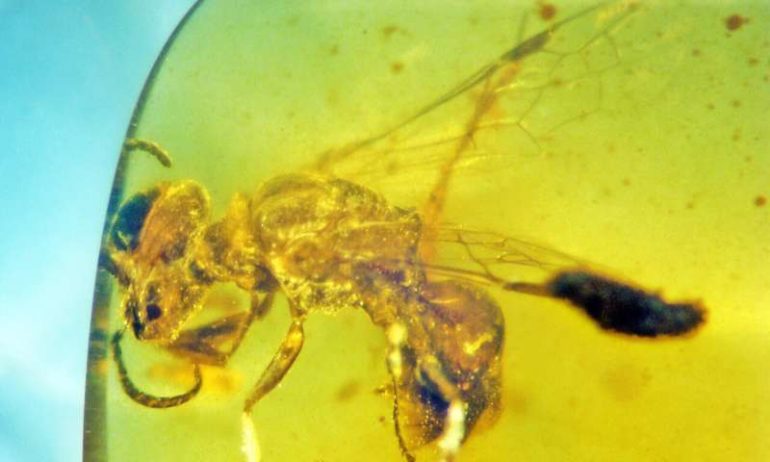Beetle parasites clinging to a primitive bee 100 million years ago may have caused the flight error that, while deadly for the insect, is a boon for science today.
The female bee, which became stuck in tree resin and thus preserved in amber, has been identified by Oregon State University researcher George Poinar Jr. as a new family, genus and species.
The mid-Cretaceous fossil from Myanmar provides the first record of a primitive bee with pollen and also the first record of the beetle parasites, which continue to show up on modern bees today.
The findings, published in BioOne Complete, shed new light on the early days of bees, a key component in evolutionary history and the diversification of flowering plants.
Insect pollinators aid the reproduction of flowering plants around the globe and are also ecologically critical as promoters of biodiversity. Bees are the standard bearer because they’re usually present in the greatest numbers and because they’re the only pollinator group that feeds exclusively on nectar and pollen throughout their life cycle.
Bees evolved from apoid wasps, which are carnivores. Not much is known, however, about the changes wasps underwent as they made that dietary transition.
Poinar, professor emeritus in the OSU College of Science and an international expert in using plant and animal life forms preserved in amber to learn more about the biology and ecology of the distant past, classified the new find as Discoscapa apicula, in the family Discoscapidae.
The fossilized bee…
